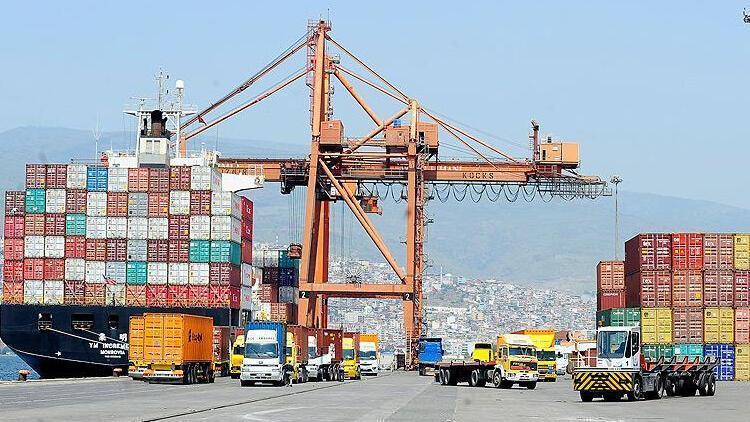
Turkey’s exports rose 33.4 percent to $21.5 billion in November, Trade Minister Mehmet Muş said at a news conference organized to announce the preliminary foreign trade figures in Ankara on Dec. 2.
Turkish exports hit $221 billion in the last 12 months, while the figure reached $203.1 billion in the first 11 months of this year, he added.
The figure shows that exports revenue overpassed the pre-pandemic level.
Exports continued to be the driving force of growth in the third quarter, Mus remarked, further saying contribution of net exports of goods and services to growth was 6.8 points.
“Thus, 92 percent of the high rate of growth in the third quarter stemmed from net exports of goods and services. In other words, Turkey has grown by producing and selling its products abroad,” he underlined.
The Turkish economy expanded 7.4 percent year on year in the third quarter, meeting expectations on the strength of retail demand, manufacturing and exports, official data showed on Nov. 30.
The GDP hit $225.5 billion in the third quarter. Annualized GDP grew to around $795 billion in the third quarter from nearly $765 billion through the previous three-month period.
Exports of goods and services increased by 25.6 percent in the third quarter of 2021 compared with the same quarter of the previous year in the chain-linked volume index, while imports of goods and services decreased by 8.3 percent.
The exports-to-imports coverage ratio reached 80 percent in November, up 4 percentage points from the same month last year.
Excluding energy imports, exports-to-imports ratio was 101.2 percent.
The $48.3 billion foreign trade volume in November is the highest monthly figure.
Turkey’s foreign trade deficit decreased by 13.6 percent in the January-November period compared to the same period last year and decreased to $39.2 billion.
The effect of energy imports was seen in both imports and foreign trade deficit in November.
Muş also said many EU countries and the United States have shifted their investments to Turkey through their supply network amid the COVID-19 pandemic, leading Turkey to benefit from its location and competitiveness.
These results show that the increase in Turkey’s exports is not temporary but permanent, Muş said, adding Turkey embraces new investments and business models as a strong and reliable supplier.
“It is a shallow approach to attribute the superior performance in exports only to the exchange rate,” he said.
The new economic model that Turkey is pursuing aims to grow the national economy by boosting investment, employment, production and exports, President Recep Tayyip Erdoğan said on Dec. 1, reiterating that this strategy will likely record more than 10 percent growth by the end of this year.
“Differently from many developing countries, Turkey has abandoned high-interest monetary policies that prevent the country’s development. Instead, we are shifting to a growth strategy based on investment, employment and production,” he said in a weekly address to his lawmakers at the parliament.